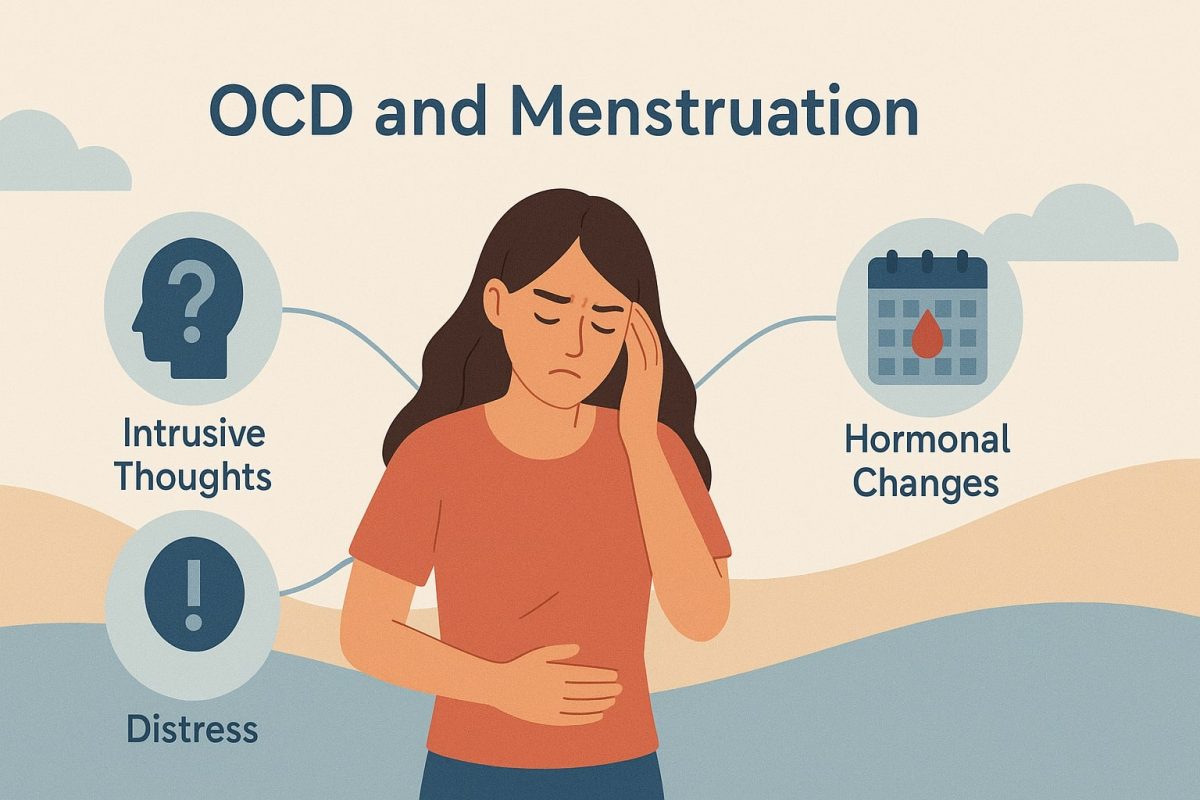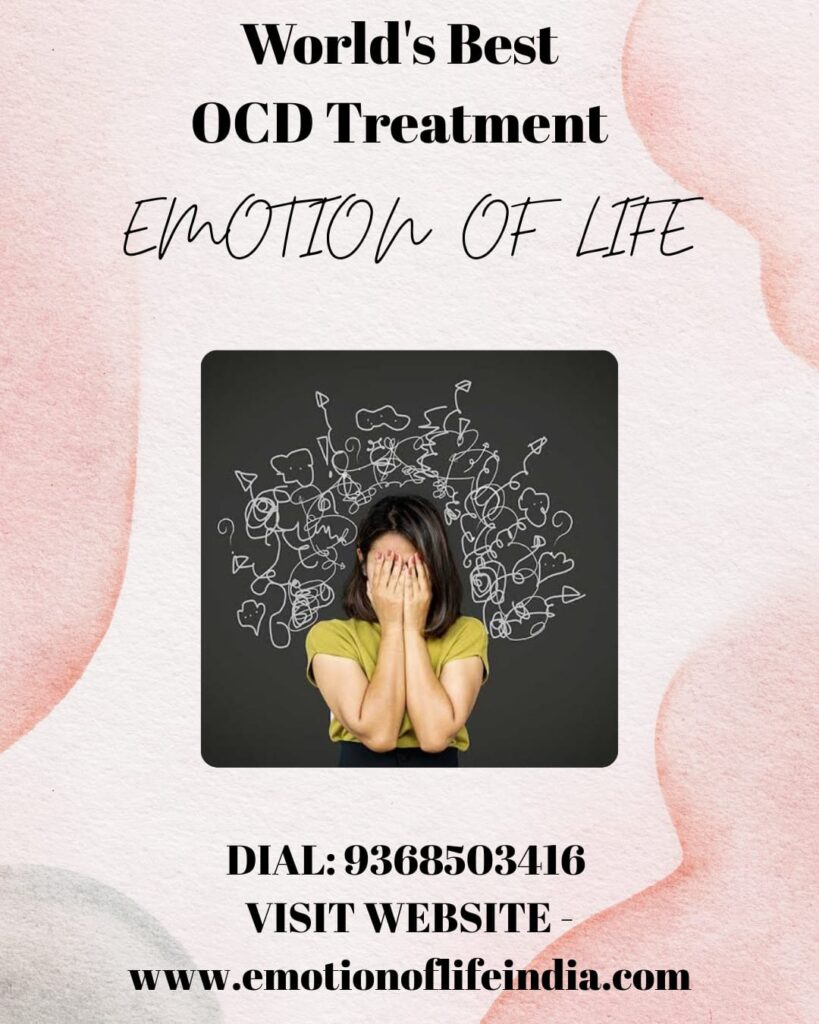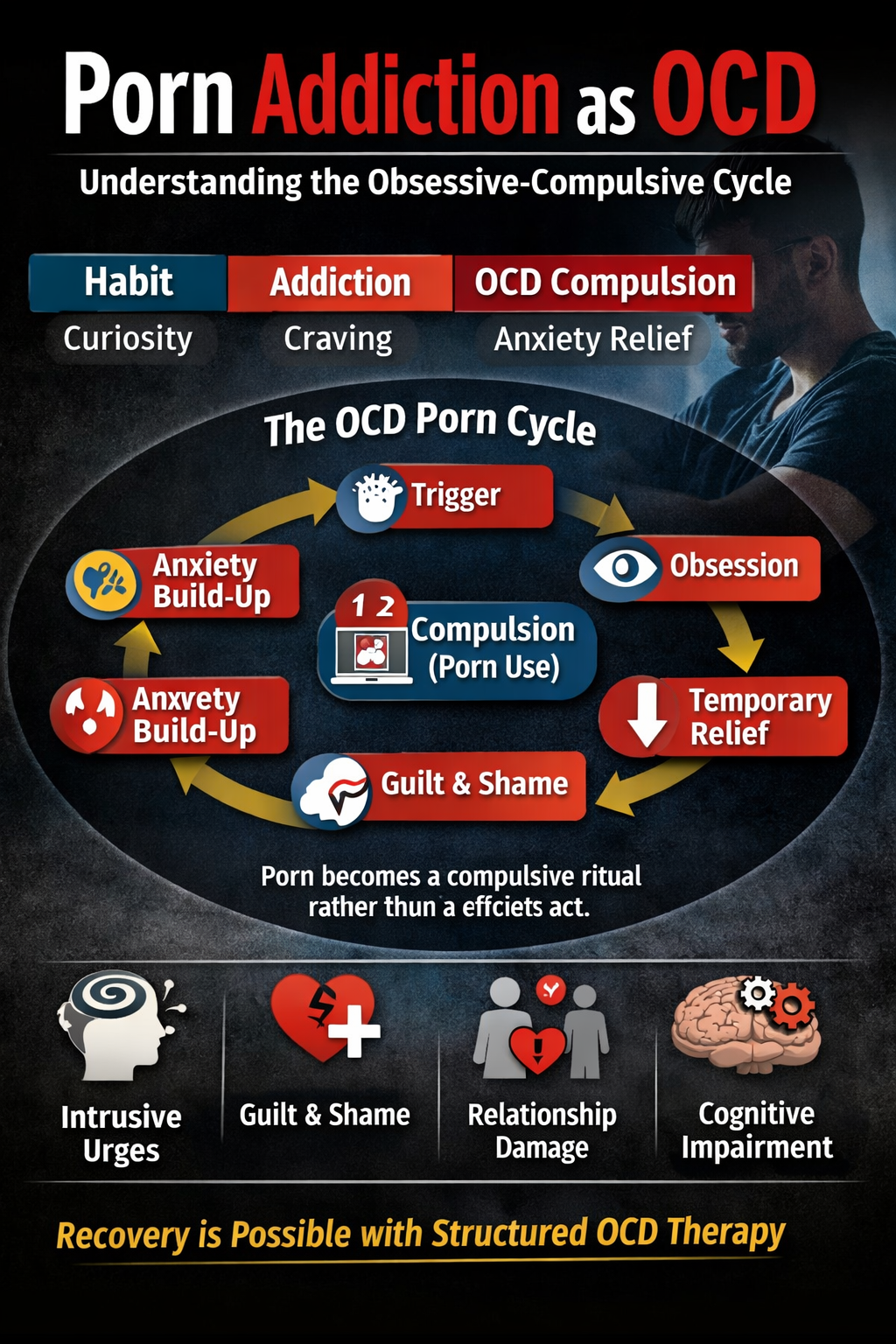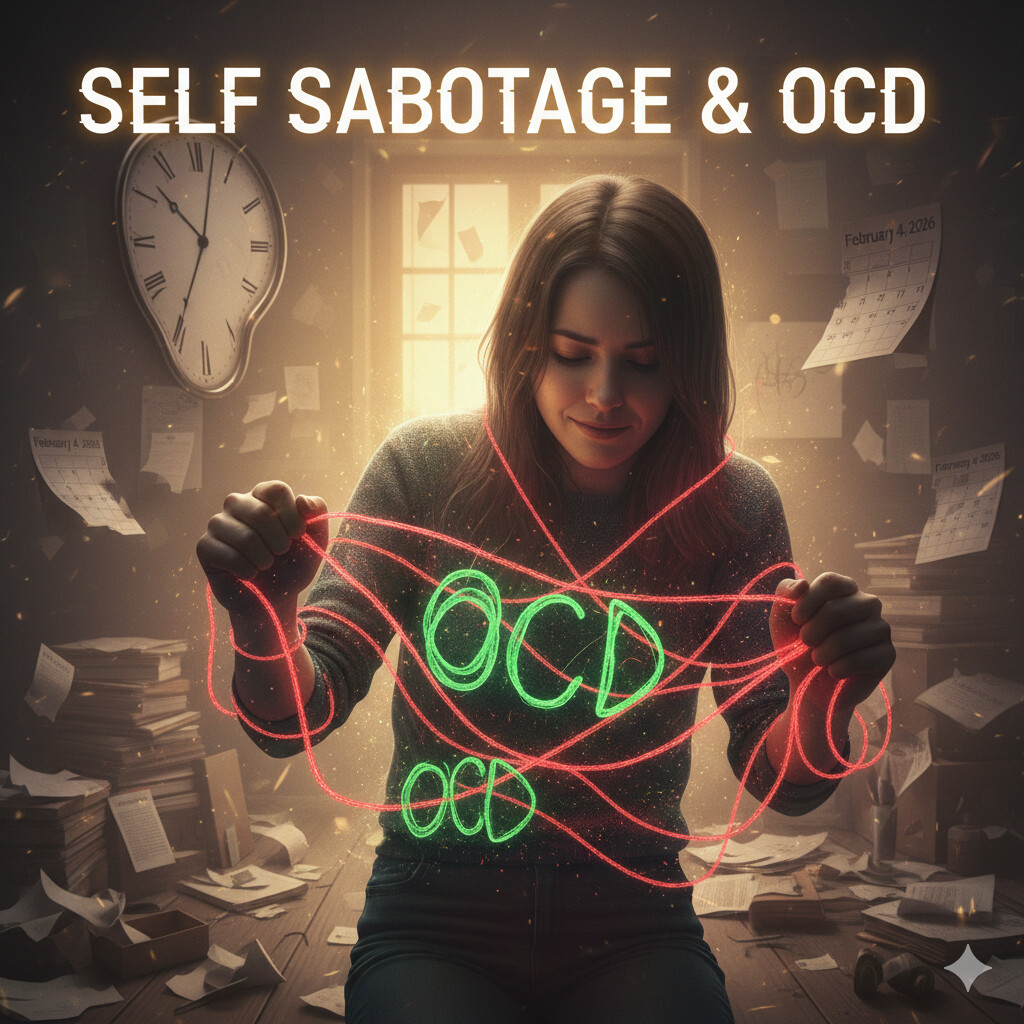OCD and Menstruation results in noticeable changes in symptom severity linked to their periods. In brief, hormonal fluctuations throughout the menstrual cycle can alter individual behaviour and emotional resilience. For many with OCD, the premenstrual phase and the initial days of menstruation often lead to heightened intrusive thoughts and increased difficulty resisting compulsions. The individual may observe an uptick in behaviors like checking, contamination fears, mental rituals, or overall anxiety during these times.
OCD and Menstruation also leads to changes in sleep, energy, and physical discomfort that can occur throughout the menstrual cycle. Poor sleep and physical symptoms can hinder your ability to employ techniques like cognitive restructuring or exposure therapy. Consequently, the same OCD individual that manages well during most of the month may feel overwhelmed during times of hormonal and physical shifts.
Overlap of OCD and Menstruation
OCD and Menstruation, Some people with OCD see a distinct pattern of symptom changes linked to their menstrual cycles, often referred to as “premenstrual exacerbation of OCD.” Others may experience premenstrual dysphoric disorder (PMDD), characterized by significant mood swings, anxiety, or irritability before menstruation.
- You may experience a surge in intrusive “what if” thoughts the week leading up to your period, increased compulsive checking, or persistent mental rehearsals of events.
- During your period, decreased energy might impede your ability to engage in exposure exercises, prompting reliance on reassurance or avoidance strategies.
- Some individuals report specific obsessions becoming more pronounced during this time such as heightened fears around contamination due to cleanliness concerns during menstruation or intensified relationship anxiety at other times.
Looking at how different OCD subtypes such as contamination, harm, checking, sexual, religious, health, existential, and perfectionism-related can change or intensify during menstruation or hormonal fluctuations.
Contamination OCD and Menstruation
Contamination OCD often escalates before and during menstruation due to increased awareness of physical sensations and heightened cleanliness behaviors.
- Menstrual blood, hygiene practices, and feelings of being “unclean” can trigger obsessive fears about dirtiness or contaminating others.
- Some women feel driven to change sanitary pads frequently, wash their hands obsessively after handling bodily fluids, or avoid close contact and public places during their periods.
- The primary concern often shifts from “I could become ill” to “I am impure,” merging themes of contamination with moral OCD.
Harm OCD and Menstruation
Around menstruation or the premenstrual period, anxiety and irritability tend to rise. This emotional volatility can intensify intrusive thoughts about causing harm, such as fears like “What if I lose control and hurt someone I care about?” or “What if I act on my harmful thoughts?”
- The hormonal decline can strengthen the emotional connection to these thoughts, resulting in guilt and compulsive mental verification (e.g., “Did I really want to hurt them?”).
- Additionally, fatigue and cramps can diminish the perception of self-control, contributing to fears of acting impulsively.
Checking OCD and Menstruation
The premenstrual phase frequently results in diminished concentration and forgetfulness, often referred to as “brain fog.”
- For individuals with checking OCD, this cognitive dullness exacerbates doubt: “Did I lock the door? Did I turn off the stove?”
- Hormonal-related anxiety increases the compulsion to check repetitively.
- The physical fatigue associated with menstruation may also lead to more mental checking rather than physical actions, resulting in exhausting ruminations.
Health OCD and Menstruation
Physical symptoms during the menstrual cycle such as bloating, cramps, headaches, and fatigue can be misinterpreted by individuals with Health OCD as indicators of serious health issues.
- For instance, thoughts may arise like, “This cramp could be cancer,” or “My exhaustion must indicate something wrong with my brain.”
The overlap of actual physical sensations with obsessive misinterpretations can intensify distress during menstruation. Moreover, premenstrual hormonal declines can increase body monitoring, leading women to frequently check their heart rate, temperature, or discharge.
Sexual Intrusive Thoughts, Relationship OCD and Menstruation
Variations in libido and mood throughout the menstrual cycle can lead to distressing confusion for those with relationship or sexual OCD.
- Premenstrual irritability may trigger doubts such as “Do I really love my partner?” or “What if I’m attracted to someone else?”
- During ovulation, which typically increases sexual desire, intrusive guilt or religious anxiety may emerge, especially in cases of moral or scrupulous OCD.
Religious OCD and Menstruation
Menstruation can trigger religion-related obsessions concerning “impurity,” “sin,” or feeling “unacceptable before God.”
- In certain cultural or religious settings that view menstruation as ritually impure, OCD can exploit these beliefs, leading to excessive prayer, avoidance of places of worship, or feelings of guilt.
- Hormonal anxiety can further intensify moral doubts and compulsive confession behaviors.
Existential or Real-Event OCD and Menstruation
Hormonal anxiety and exhaustion can diminish cognitive flexibility, making profound or philosophical obsessions (e.g., “What is the meaning of life?” or “Did I do something unforgivable?”) feel more burdensome.
- Premenstrual irritability amplifies emotional reactions to these thoughts, increasing feelings of despair and rumination.
- Memory distortions caused by hormonal changes may also lead to “false memory” obsessions during this time.
Effective Strategies to Implement
- Track your cycle and symptoms. For a couple of months, maintain a simple daily journal recording your menstrual phase, sleep hours, OCD severity, mood, and triggers. Identifying patterns will help you plan better and facilitate discussions with your therapist.
- Schedule exposures according to your cycle. If a flare-up is anticipated, arrange your most challenging ERP tasks for times when you feel more resilient and plan “maintenance” exposures during more vulnerable days to maintain practice consistency. Consistent short practice is more beneficial than significant gaps.
- Focus on sleep and routine. Avoid overwhelming yourself during hormonal fluctuations; prioritize consistent sleep, light exercise, and healthy meals during the luteal phase and menstruation to maintain balanced mood.
- Utilize grounding and acceptance strategies. When compulsions feel overpowering, grounding techniques (such as the 5-4-3-2-1 sensory check), controlled breathing, or recognizing intrusive thoughts as “OCD thoughts” can help reduce reactivity as you wait for anxiety to subside.
- Communicate with your support network. Inform a trusted friend, partner, or therapist about your cyclical challenging days and request specific, limited support (like a single check-in text rather than multiple reassurance conversations that could reinforce compulsions).
Long-term Strategies and Self-Compassion
Coping with cyclical symptom fluctuations involves both practical and emotional elements. Give yourself permission to approach life differently throughout the month: adjust deadlines if possible, seek a bit of flexibility, and plan self-care activities (like warm baths or low-key social engagements) during the luteal and menstrual phases. Acknowledge and celebrate small victories like successfully managing one urge without acting on it is still progress, regardless of any subsequent anxiety spikes. Recovery is a journey measured over months and years, not days.
Conclusion
While hormones can have a powerful impact, they do not signify a failure in your treatment. Recognizing the cyclical patterns is the initial step towards effective management. By tracking symptoms, making minor adjustments in therapy and self-care, and maintaining open communication with your therapist, many individuals find they can lessen monthly setbacks and continue their progress. If you feel ready, start tracking your symptoms today, discuss your cyclical experiences candidly with your therapist, and treat your premenstrual and menstrual weeks as periods for self-kindness rather than self-criticism.
Call now: +91 9368503416
Website: www.emotionoflife.in
Email: info@emotionoflife.in
Book Now | OCD Types | Meet Our Experts | Success Stories | Contact Us











